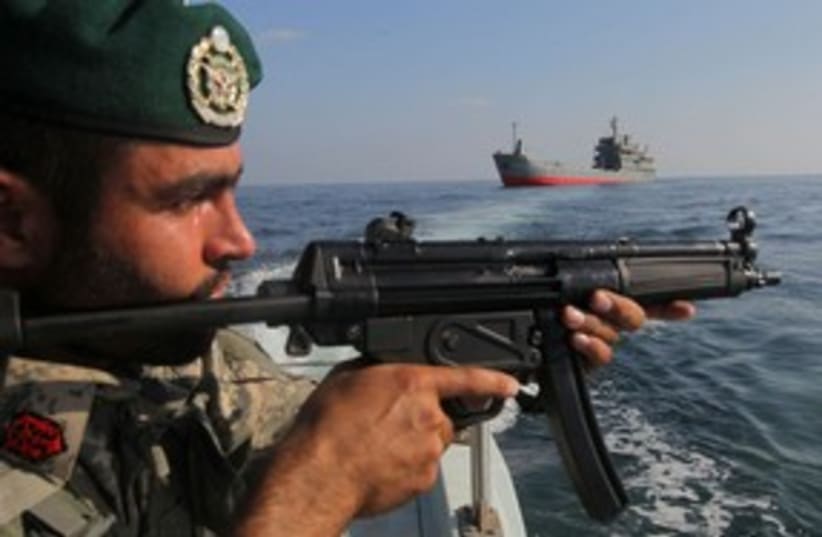RELATED:Barak: Tougher sanctions needed for Iran to change courseIran says sanctions to fail, repeats Hormuz threatThe question then would be: What next?The US has taken a clear approach – some Israelis wished this week that such American resolve would carry over to Iran’s nuclear program – claiming that it will use military force, if needed, to reopen the sea line.Defense officials said Tuesday that while Iran will continue to threaten to close the strait, it most likely will not do so, in order to avoid providing US President Barack Obama with the justification to launch a strike against Iran and its nuclear facilities.Already under attack by political opponents for his economic policies, Obama is unlikely to initiate a war with Iran that would lead to a spike in worldwide oil prices. While the price of gas in the US would significantly increase, his popularity would crash.If, however, Iran closes the strait or attacks the USS Abraham Lincoln aircraft carrier that sailed through the channel and into the Persian Gulf on Sunday, Obama would receive the justification he needs to attack Iran, even in this election year.
Strait of Hormuz at center of int'l chess game
Analysis: If Iran closes the strait, Obama would receive the justification he needs to attack, even in this election year.

RELATED:Barak: Tougher sanctions needed for Iran to change courseIran says sanctions to fail, repeats Hormuz threatThe question then would be: What next?The US has taken a clear approach – some Israelis wished this week that such American resolve would carry over to Iran’s nuclear program – claiming that it will use military force, if needed, to reopen the sea line.Defense officials said Tuesday that while Iran will continue to threaten to close the strait, it most likely will not do so, in order to avoid providing US President Barack Obama with the justification to launch a strike against Iran and its nuclear facilities.Already under attack by political opponents for his economic policies, Obama is unlikely to initiate a war with Iran that would lead to a spike in worldwide oil prices. While the price of gas in the US would significantly increase, his popularity would crash.If, however, Iran closes the strait or attacks the USS Abraham Lincoln aircraft carrier that sailed through the channel and into the Persian Gulf on Sunday, Obama would receive the justification he needs to attack Iran, even in this election year.